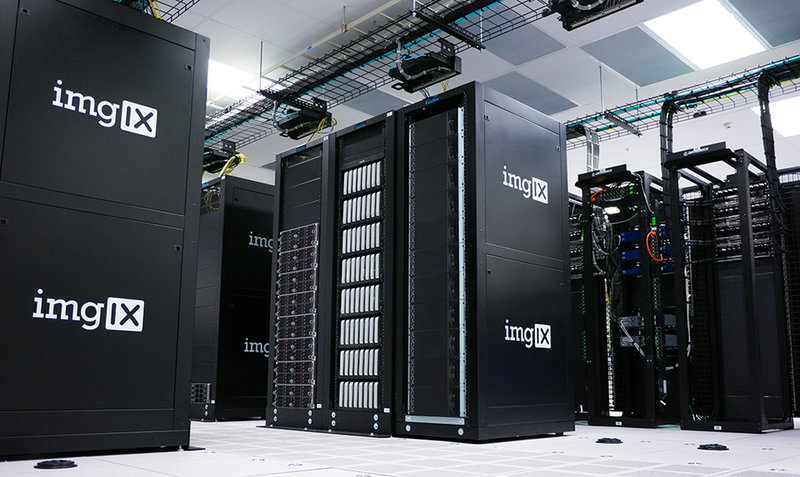Industry 4.0
Transform or lose:
How the Coronavirus is Accelerating Industry 4.0
Thanks to the coronavirus, industry 4.0’s birth is more painful, brutal and quick than we could have ever expected. As a recession looms, Lucy Ingham explores why adoption could be vital to companies’ survival

It’s often said that necessity is the mother of invention, but it’s also the mother of adoption. And that’s certainly been the case when it comes to the technologies under the broad umbrella that is industry 4.0 during the coronavirus crisis.
Digital transformation – the act of adopting industry 4.0 technologies such as big data analytics, the internet of things (IoT), autonomous systems and machine learning – has been spoken about at great length over the past few years. But while many companies have begun to adopt these technologies and incorporate them into operational processes, many more have not got beyond buzzwords and trial projects.
A 2019 survey by Censuswide found that while 95% of leaders at public and private sector organisations considered themselves to be ‘digital thinkers’, only around half actually reported having overseen successful digital transformation projects.
There’s almost certainly more than a few CEOs now regretting not moving faster on bringing industry 4.0 into the operational fold, because now the coronavirus has hit it has become more essential than ever.
“The current crisis will be one of the greatest drivers of digital transformation, as businesses seek visibility of data across systems and volatile supply chains,” says James H Chappell, global head of AI and advanced analytics at industrial software giant AVEVA.
“There has been an educational shift, customers understand now where they need to get to and how quickly they need to do it. This is a moment where businesses must go faster, customers are rapidly going digital, it is no longer a 'nice to have'.”
Industry 4.0 and the coronavirus: The haves and have-nots
The sudden need to pivot to home working has carved the business community into the digital haves and have-nots; those that had already switched to cloud-based systems and an agile approach have been able to transition relatively comfortably, but those that have done little to transform their systems are struggling.
“Those who have been slow to engage with industry 4.0 are now facing an unprecedented struggle to run their businesses with limited on-the-ground workforces,” says Chappell.
“Without IoT, analytics and cloud, businesses are running blind into this crisis.”
“Without IoT, analytics and cloud, businesses are running blind into this crisis.”
Many companies have been forced to cut the breaks on formerly sluggish digital transformation projects, discovering that their long-hyped initiatives really didn’t need that extra year of meetings and pilots before they could be put into place.
And this goes far beyond just enabling employees to remotely access company files. The ability to analyse employee and company performance; track products on the supply chain; monitor organisational systems and a myriad of other tasks are enabled or significantly enhanced by industry 4.0 technologies.
“The current crisis is accelerating the inevitable, businesses are re-doubling investment into industry 4.0, using data in increasingly sophisticated ways to provide visibility and certainty into their operations,” says Chappell.
“Data acts as a source of truth that focusses teams on the critical factors that determine business resilience during this period of great disruption. AI is driving industry 4.0 and providing the brains behind it to effect business transformation in ways never before possible.”
Survival in a baptism of fire
Despite the immense potential that industry 4.0 holds, the reality is that for some companies speeding up its adoption in the current climate will be painful, stressful and intensely challenging. After all, if digital transformation was easy and required minimal resources, few organisations would have dragged their heels on the matter.
“For those who have started the process of digital transformation, progress will be rapid in the adoption of industry 4.0 but there is a yawning gap for those yet to start the journey,” says Chappell.
This is particularly problematic given that this transformation needs to occur through two distinct phases that present their own unique challenges. While we are currently seeing organisations transition to lockdown, which has prompted layoffs, furloughs and rapid pivots in some industries amid a widespread move from on-premise to on-cloud, the looming global recession will see many organisations take a far greater battering.
Gita Gopinath, the chief economist at the International Monetary Fund, in April described the situation as a “crisis like no other”, warning of a 3% contraction of the global economy and the worst decline since the Great Depression some 90 years ago.
“The reality is that for some companies speeding up adoption in the current climate will be painful, stressful and intensely challenging.”
And in the midst of this climate, organisations that now stand at the start of the digital transformation road have a long and winding route ahead of them – and one that it will likely take considerable expenditure to traverse.
“Shifting operational models can be costly. It is likely that well-resourced firms will take advantage of the gap that will likely be created between those firms who can afford to adapt quickly and those which cannot,” says Nigel Green, CEO and founder of financial consultancy deVere Group.
“The biggest barrier right now will be heavy capital expenditure at a time where balance sheets are under strain,” agrees Chappell, adding that such expenditure is likely to prove worthwhile.
“Investing now, however, will prove out in the medium term as businesses manage their facilities through the coming recession. The efficiency gains from industry 4.0 will be a saving grace in the face of margin pressure.”

Image courtesy of Clay Banks on Unsplash
Lifting fear in the face of failure
Money isn’t the only issue, however. Successful digital transformation requires skilled staff – a challenge in and of itself given the skills shortage that has long-faced the technology industry – as well as strong data sources.
“The greatest demand right now is in artificial intelligence-based solutions, but these require you to have rich data to build upon,” says Chappell. “There is a network effect of investing in industry 4.0 where the total gain is greater than the sum of its parts.”
But for those that don’t invest, there is a very real danger that they will not survive.
“The world is becoming increasingly digitalised and globalised. Firms which do not meet this far-reaching phenomenon will inevitably be left behind,” says Green.
But fuelled by a sense of urgency, fewer organisations are likely to choose not to act.
“The world is becoming increasingly digitalised and globalised. Firms which do not meet this far-reaching phenomenon will inevitably be left behind.”
“The so-called Fourth Industrial Revolution, which is led in a large part by digitalisation and new technologies, was already beginning to pick-up pace before the global pandemic,” adds Green. “However, this pace has been further quickened as normal rules of business are revised and reformed due to social distancing and lockdown measures.”
For many, the coronavirus and its knock-on effects have essentially evaporated organisational fears about industry 4.0, taking it from a risky bid with potential gains to a key resource for survival.
“I think what we're going to see is some of the fears that have stopped progress of industry 4.0 instantly being lifted because we've been forced into this new normal,” says Bruce Davison, CEO of real estate management software provider GoSpace AI.
“For example, companies might have been nervous to release some of their real estate before. But now that they've functioned for so long without the space, they're going to be much more able to work efficiently and dynamically than they were before.”
Different technologies, different timeframes: Unpacking industry 4.0
As much as, amid the coronavirus, industry 4.0 and digital transformation has become about survival, it is also about transforming business into a slicker, smoother beast, where algorithms and machines take over repetitive processes and free up room for serious productivity gains.
“Digitisation provides companies with huge opportunities – from driving greater efficiency and facilitating rapid growth to empowering staff with more flexible working approaches and better serving our customers,” says Max Rae, head of product at online investment management service Nutmeg.
“There are great opportunities for technology to help businesses deliver a better customer experience and ultimately, better customer outcomes. That is as important, if not more so, now as at any other time.”
However, with industry 4.0 covering such a broad range of technologies, not all will see adoption at the same pace; some are already surging in use as a result of the coronavirus, while others will take further time to fully emerge. The varying needs of industries are also set to dictate adoption rates of different industry 4.0 technologies, as will the current pandemic and following recession.
“All sectors around the world have been forced to make changes due to the Covid-19 outbreak. As such, it is likely that all sectors will accelerate,” comments Green.
“All sectors around the world have been forced to make changes due to the Covid-19 outbreak. As such, it is likely that all sectors will accelerate.”
“However, those in which employees can work remotely – the service sector for example – are likely to do so more quickly. Others, such as manufacturing, can be expected to take longer.
“As the Fourth Industrial Revolution is driven by new technologies, such as artificial intelligence and mobile supercomputing, these areas will advance at a blistering pace.”
There also is the matter of how the coronavirus pandemic and economic downturn is shaping consumer attitudes and habits. This period of time is likely to have a profound and generation-long impact on mentalities, and for consumer-facing industries, that will be hugely significant. But here too, technology is likely to play a role.
“We are seeing a period of great distrust and disinformation while global supply chains are disrupted, data is key to traceability and provenance ensuring that drugs and food come from authentic sources,” says Chappell.
“Better visibility allows us to understand where resources such as food and pharmaceuticals are and how we can get energy efficiently to those who need it.”

Image courtesy of Liliya Lisa on Unsplash
Enabling agility in an unstable world
This new world we find ourselves in is also set to be characterised by instability, where what constitutes business-as usual will be different from one month to the next.
Industries that are experiencing sudden shifts in output as we enter and exit lockdowns will also see benefits from industry 4.0 technologies, as will those that need to scale back to withstand the oncoming recession.
“Many companies in industries such as the retail sector will be scaling down or focusing production on fewer product categories, where others will be ramping up with irregular flows of raw materials. But what happens on the other side when demand bounces back after quarantine is lifted?” says Chappell.
“Businesses need to be incredibly agile to manage both the costs of turning down production, followed by the working capital constraints to then rebuild production levels as economies recover.”
“Businesses need to be incredibly agile to manage both the costs of turning down production, followed by the working capital constraints to then rebuild production levels as economies recover.”
This ability to quickly flex in response to changing economic conditions has already proved vital amid the coronavirus, but the use of industry 4.0 technologies to support operational agility is set to continue to be immensely valuable over the next few years.
“Digitisation is essential for industry in this current climate, both to increase margins and operational performance in good times and to adapt in the bad. There can be no doubt that a recession will follow and so businesses may have to ask how they can scale down production,” explains Chappell.
“Energy consumption, for example, is at a record low; industry 4.0 is critical to weathering this market to find efficiencies, prevent downtime and to predict problems and solutions as they arise.”

Image courtesy of Carl Nenzen Loven on Unsplash
A challenging road ahead
Regardless of whether their digital transformation journey is well on its way, or only beginning, all organisations face challenging times, as a new, more digital world shaped by industry 4.0 is born out of the ashes of the coronavirus pandemic.
These challenges will not only be operational; they will also be societal, with businesses forced to reckon with long-raised questions whose answers will impact far more people than just their customers and shareholders.
One such area is the issue of bias in AI technology – a problem that is far more about the data machine learning platforms are being fed than their inherent design, but which still remains a key challenge, particularly for tech-facing companies.
“Research suggests that AI may learn a gender bias from humans that are doing the coding,” says Nutmeg’s Rae.
“This is potentially particularly relevant for a business like Nutmeg, that sits across two industries – financial services and technology – that are traditionally more male-dominated.”
Arguably a bigger issue, however, is the intense restructuring of the workforce that the emergence of industry 4.0 is set to generate.
“Business leaders will no longer be asking ‘why are we doing this?’ but ask why they haven’t invested enough previously.”
In 2018, a widely covered report by PwC found that, despite widespread fears, the emergence of AI and supporting technologies would not prompt large-scale unemployment, but would force millions to retrain. Such retraining would require large numbers of people to switch from roles dominated by manual tasks to those requiring strong digital skillsets.
But this was before a recession was in the mix. It is likely that such loss of manual jobs will now be more rapid as companies embrace industry 4.0 more quickly, meaning many workers will need to acquire new skills faster than expected if they want to remain in employment.
Furthermore, the likely insolvency of some businesses – added to the layoffs that have already occurred amid the coronavirus – will put further strain on the workforce, as will downsizing as companies turn to industry 4.0 technologies to keep their companies going in uneven and uncertain times.
For many companies, then there will be a responsibility and a necessity to undertake far more training than would previously have been the case, amid already chaotic and fast-paced digital transformation projects. This will be in the interests of such businesses as it will help generate the skillsets they require to compete in this new world, but it will also help society recover from the immense blow it has been dealt.
“One of the greatest factors holding industry 4.0 back has been education. Now in the face of coronavirus, the need for industry 4.0 is more present and urgent than ever before,” says Chappell.
“Business leaders will no longer be asking ‘why are we doing this?’ but ask why they haven’t invested enough previously.”
Back to top
